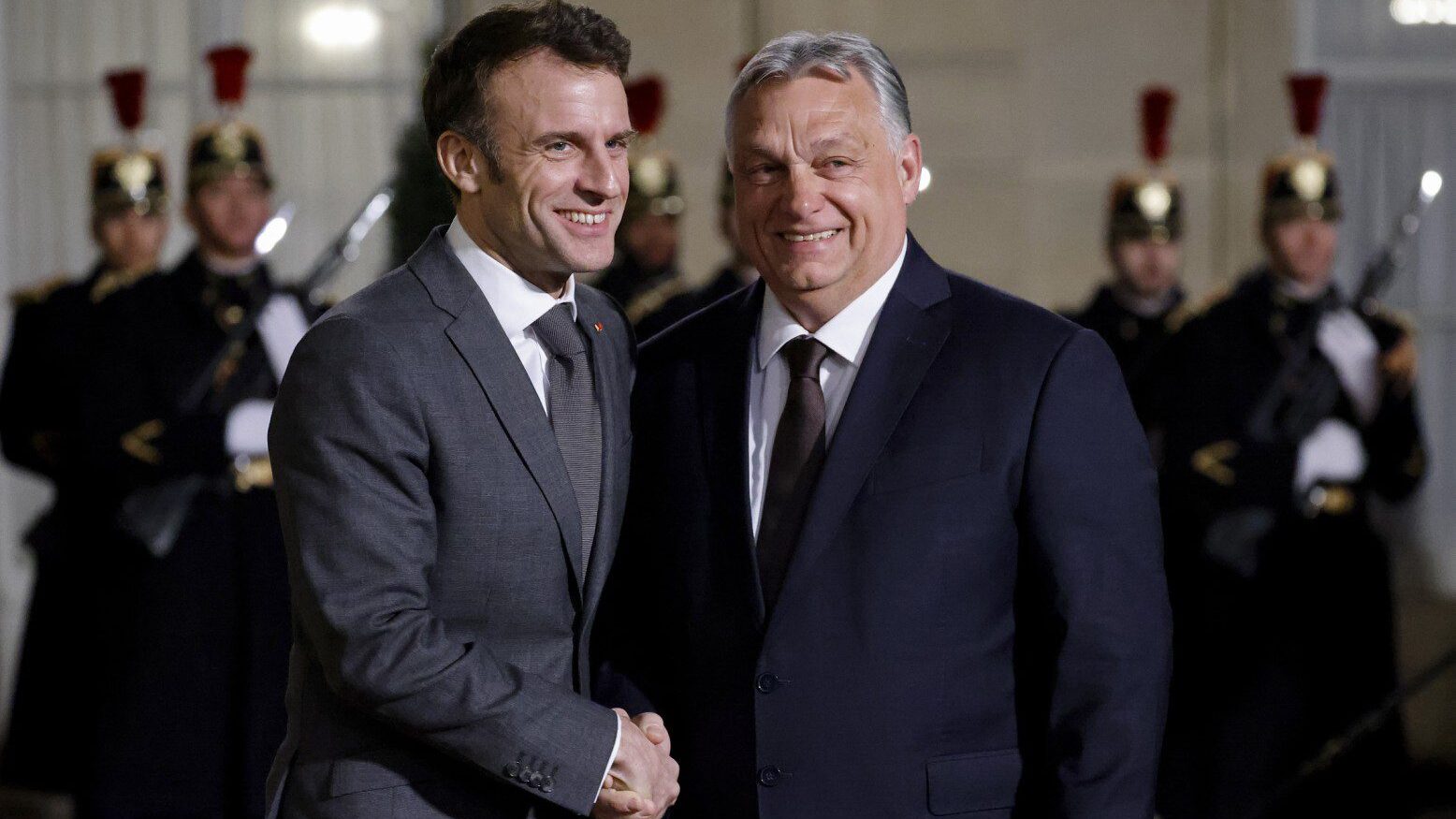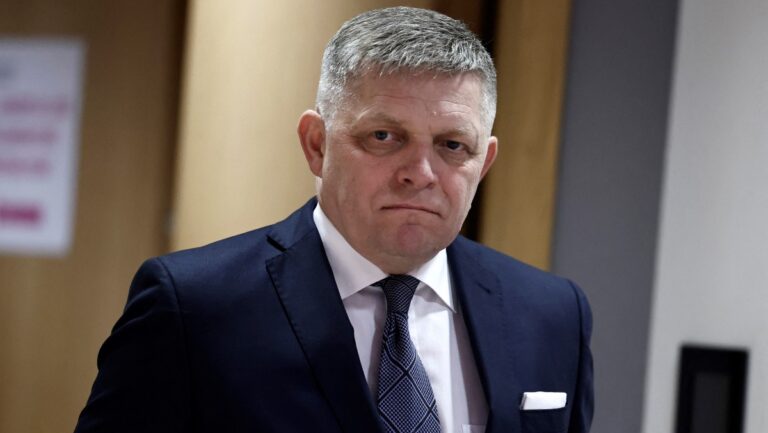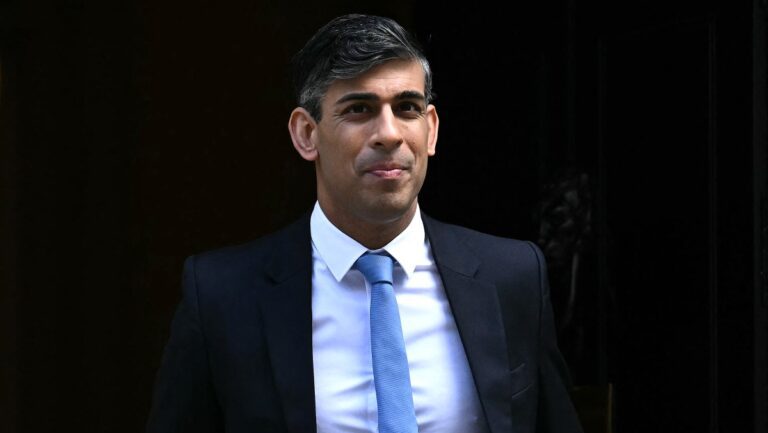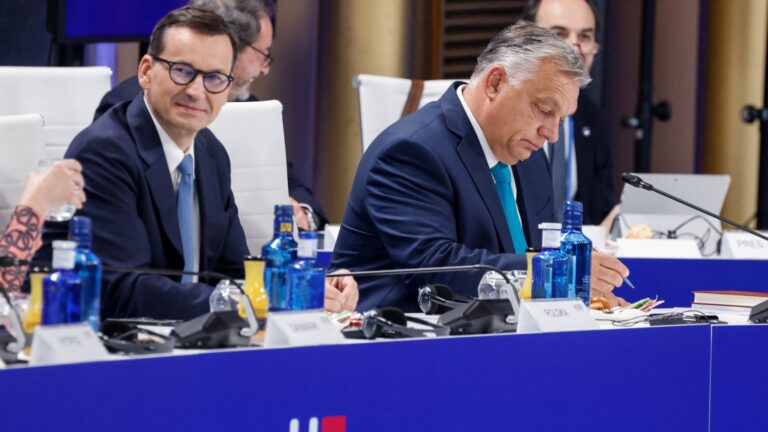On his return from Africa, Emmanuel Macron received Hungarian Prime Minister Viktor Orbán on Monday, March 13th, for a working dinner at the Élysée Palace in Paris. On the menu: the war in Ukraine and the unity of Europe.
The last bilateral meeting between the two heads of state was held in Budapest in December 2021. Now, the two leaders met as a precursor of the next European Council, to be held in Brussels, March 23rd and 24th. For Viktor Orbán, this meeting has a symbolic dimension that should not be overlooked: it proves that despite his positions, which are contrary to the majority of his European colleagues, he maintains dialogue with the West.
The French presidency explains that it discussed with the Hungarian leader “issues of European industrial policy and competitiveness, as well as the subject of migration.”
Behind this broad title, other burning issues were discussed, in particular Hungary’s position on the war in Ukraine. Prime Minister Orbán has been calling for a ceasefire since the beginning of February.
Orbán has defended a median position for Hungary since the war broke out last year. His resolve is motivated by Hungarian interests, which means refusing to escalate a conflict that has emerged as an ‘indirect war’ waged by Europe against Russia. He is thus opposed to sending arms to Ukraine—a position he shares with Austria, but endures far more political thrashing: the French press likes to portray Orban as a ‘friend’ or ‘accomplice’ of Putin. The French presidency, for its part, used the dinner at the Élysée as an opportunity “to reaffirm the need for the unity of European countries in their support for Ukraine in the face of Russian aggression, notably through the strict application of sanctions against Russia.”
The Hungarian press meanwhile highlights the fact that Emmanuel Macron is one of the few European leaders to show a certain moderation in the conflict—unlike Poland or the Baltic States for example. Since the beginning of the war, the French president has constantly insisted on maintaining contact, however fragile, with Vladimir Putin, which Viktor Orbán considers to be common sense.
Sweden and Finland’s accession to NATO drew the leaders’ attention. Hungary, as a member of the 30-strong Atlantic Alliance, has yet to ratify these two new applications submitted in the midst of the war in Ukraine. According to French diplomatic services, Hungary’s ratification of these applications, by parliamentary means, should not pose any major problems.
Macron and Orbán also discussed industrialization and energy. They came together on the issue of defending European competitiveness in the face of the American industrial offensive, and on the importance of maintaining contact, despite the obstacles, with China. A significant point of convergence also emerged on the nuclear issue. The French and Hungarian governments lobbied for the recognition of nuclear power as a green and sustainable energy a few months ago. A discussion is currently being conducted by the Hungarians regarding the ongoing renovation of the Paks nuclear power plant—the only Hungarian nuclear power plant to date—for Franco-German technical assistance. While the Germans are slow to commit, the French have already provided all the necessary authorisations and the Hungarians are potentially considering a purely Franco-Hungarian collaboration should the Germans fail to do so. As part of Viktor Orbán’s visit, Hungarian Foreign Minister Péter Szijjártó visited the Flamanville reactor site in Normandy.
Finally, Macron raised the question of respect for the rule of law in Hungary with Orbán, an issue the European institutions consider insufficient and which has led them to withhold several billion in aid expected by Hungary.





